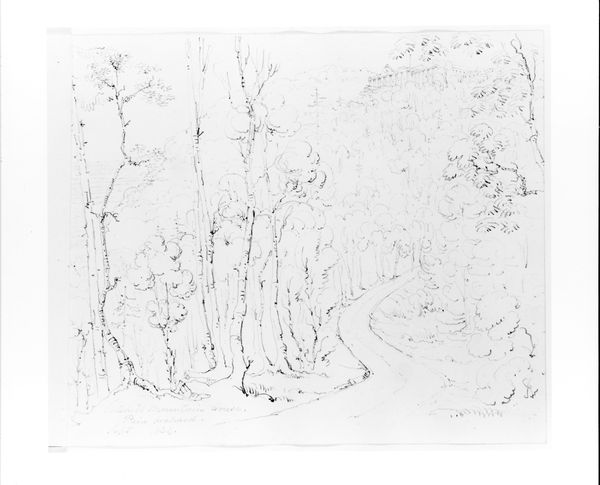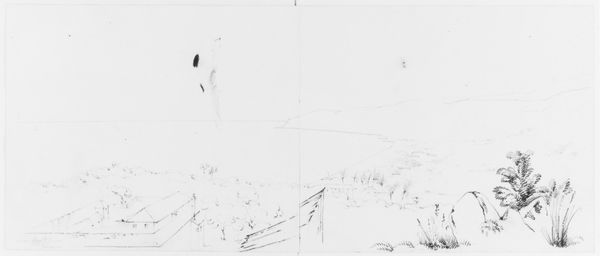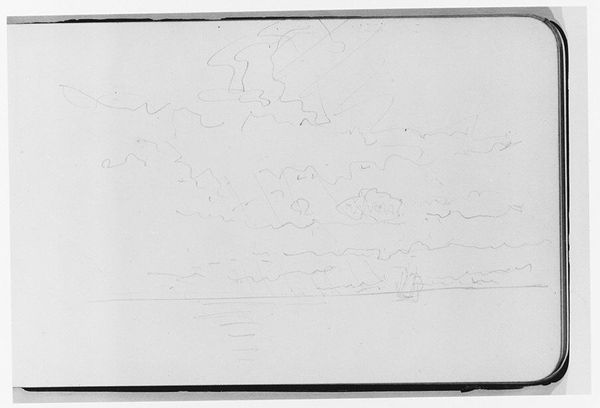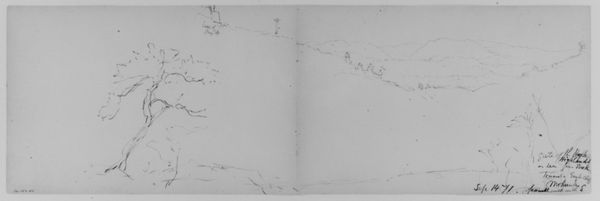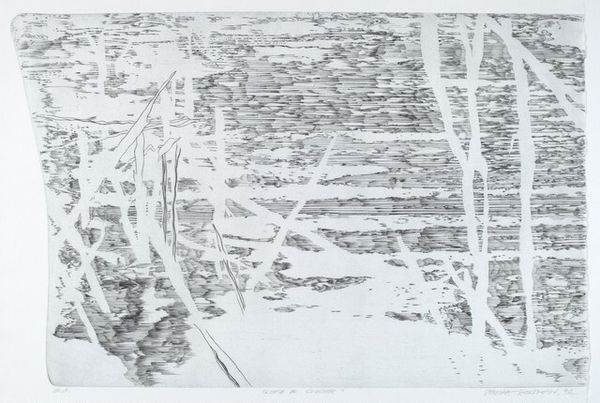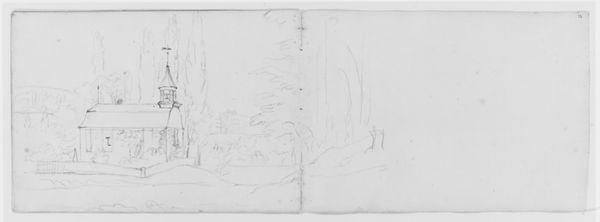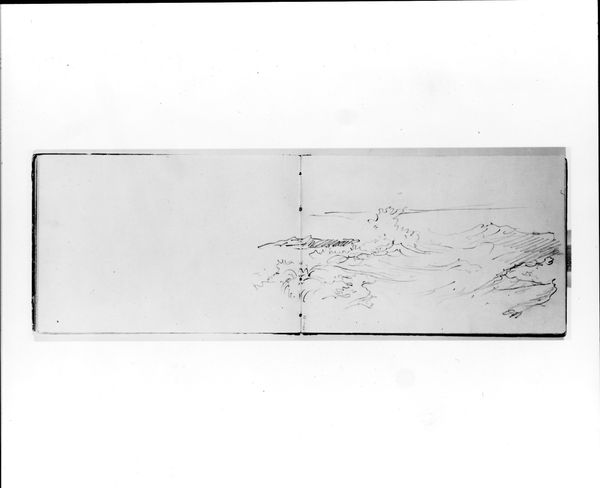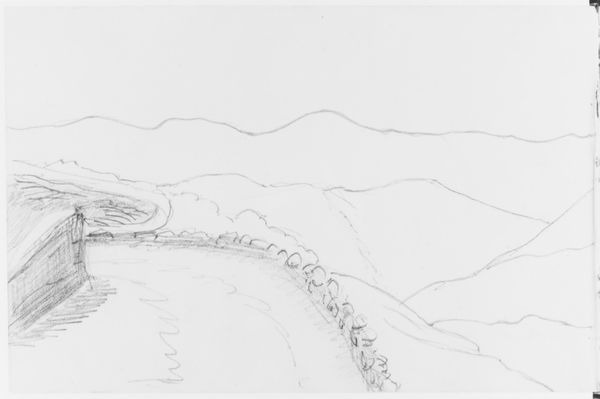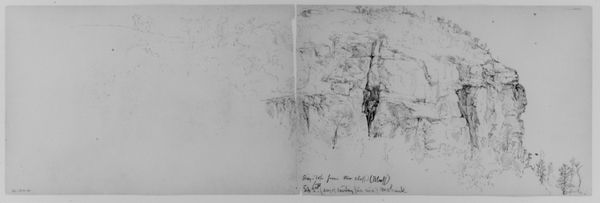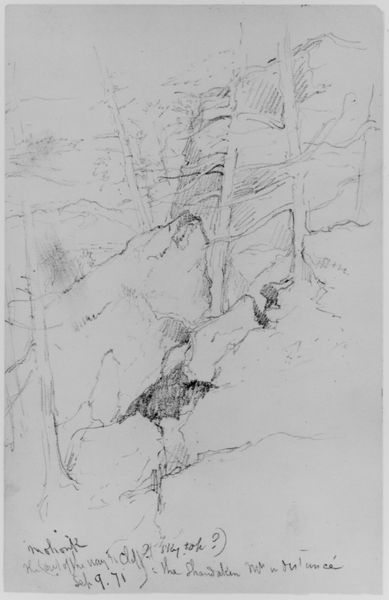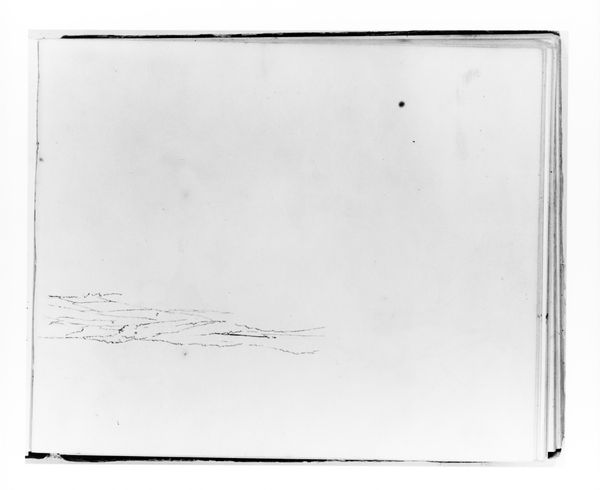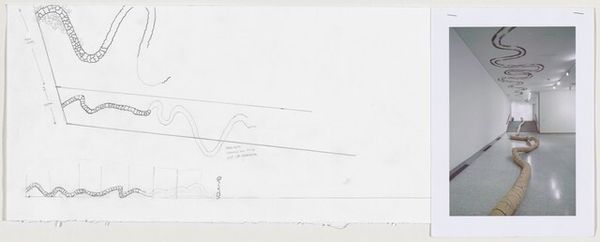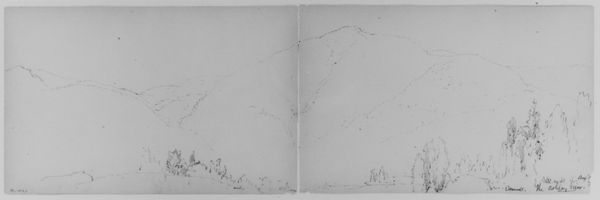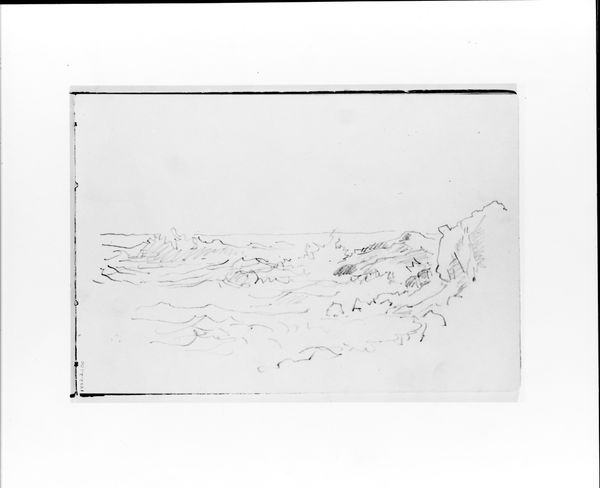
Falls in the Hills (from Sketchbook) 1834 - 1838
0:00
0:00
drawing, pencil
#
pen and ink
#
drawing
#
landscape
#
pencil
#
hudson-river-school
Dimensions: 7 1/4 x 9 in. (18.4 x 22.9 cm)
Copyright: Public Domain
John William Casilear made this sketch, "Falls in the Hills," with graphite on paper, sometime in the 19th century. Graphite, a humble material, allows for a great range of expression, from delicate lines to dense shading. In this work, the artist used graphite to quickly capture the essence of the natural world. The thin lines mimic the cascading water, while the rougher marks evoke the texture of the rocky landscape. The very act of sketching, a direct and immediate process, mirrors the artist's encounter with the scene. There’s an apparent spontaneity here, a record of a fleeting moment. Before photography, such drawings were vital for documenting and sharing views of the world. Yet, this isn't just a factual record. The artist’s hand, guided by personal interpretation, transforms the graphite into an expressive tool, reminding us that even the simplest of materials can convey profound artistic vision. It’s in this tension between observation and expression that we see the true value of craft.
Comments
No comments
Be the first to comment and join the conversation on the ultimate creative platform.
